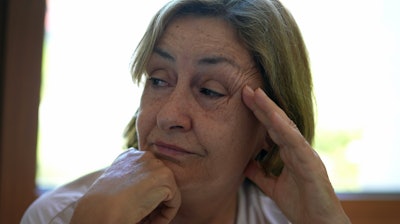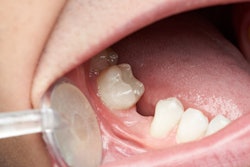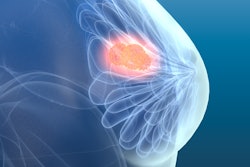
Migraines and severe headaches may be associated with the number of missing posterior teeth, according to a very large study of U.S. patients published on September 9 in the Journal of Prosthetic Dentistry.
However, missing back teeth that were restored were not linked to migraines or severe headaches, the authors wrote.
"Preserving the morphological and functional integrity of posterior teeth may contribute to reducing migraine or severe headaches," wrote the authors, led by Dr. Yundong Liu, PhD, of Central South University in China.
Research related to a possible association between unrestored missing back teeth and migraines and severe headaches is limited.
Therefore, to explore this potential relationship, a cross-sectional study was conducted using data from the U.S. National Health and Nutrition Examination Survey 1999-2004 and included 12,662 participants between the ages of 20 and 85. Dental examination, dietary intakes, and self-reported migraine or severe headaches were included in the data. Then regression analyses were conducted. Of the participants, about 20% reported having migraines or severe headaches, according to the study.
After adjusting demographic, clinical, and dietary factors, the total number of missing teeth was not significantly associated with migraine or severe headaches, and only having both anterior and posterior missing teeth was considerably linked to migraines or severe headaches. The odds ratio (OR) and confidence interval (CI) were 1.32 (1.09, 1.60) (p = 0.007), the authors wrote.
Additionally, a significantly positive correlation was found between the number of unreplaced missing teeth and migraine or severe headaches. An increase of one in the number of unreplaced missing teeth was associated with a 3% increase in migraine or severe headaches (OR and CI: 1.03 [1.01, 1.06], p = .012). However, no significant relationship was found between replaced missing teeth and migraine or severe headaches (OR and CI: 1.00 [0.99, 1.01], p = .800).
Furthermore, a one-tooth increase in unrestored back teeth was related to a 4% increment rise in migraine or severe headaches (OR and CI: 1.04 [1.01, 1.07], p = 0.017). However, the number of restored posterior teeth was not linked to headaches or migraines (OR and CI: 1.00 [0.99, 1.02], p = .900), they wrote.
Nevertheless, the study had limitations. The cross-sectional nature of the study prevented causal interferences from being made, the authors wrote. Based on the findings, clinicians may want to consider multidisciplinary strategies when treating patients with migraines or severe headaches, they wrote.
"The number of unreplaced missing posterior teeth were positively associated with migraine or severe headaches, while missing but restored posterior teeth were not associated with migraine or severe headaches," Liu and colleagues wrote.




















